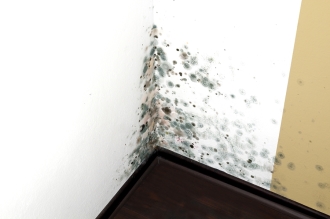A HOMEOWNER’S GUIDE TO THE DANGERS OF MOLD
Water damage in Rockville is dangerous for a variety of different reasons and should be dealt with as soon as possible. Mold inspection and testing is important due to the effects that this fungus may have on human health. Keep reading for a homeowner’s guide to the dangers of mold.
Symptoms
When a human is exposed to mold, a wide array of symptoms may be experienced. These symptoms depend on the individual’s sensitivity to the fungus, the presence of allergies, and the amount of mold that the person comes in contact with. Those who are sensitive to mold may experience irritation of the eyes, nasal congestion, and wheezing. People who have severe allergies or who are exposed to a great deal of mold may develop shortness of breath or a fever.
Exposure
Mold can be found in a multitude of different places in both indoor and outdoor environments. The fungus tends to be prevalent in outdoor areas that feature decomposing vegetation, moisture, and shade. Indoor areas like showers and basements are prone to mold growth due to the abundance of humidity typically present in these places. Flower shops, saunas, and construction areas are known to have particularly high levels of mold. There are a number of things that you can do to avoid mold exposure: Stay away from wooded areas or compost piles, and do what you can to control the levels of humidity inside your house.
Treatment
If you are not sensitive to or allergic to mold, you can clean mold with soap, water, and a bleach solution. However, those who are at risk for severe reactions when dealing with mold should talk to a mold removal professional as soon as the problem is discovered. In the event that you experience health complications due to mold, see your general physician—who may refer you to a specialist.
Mold is a potentially dangerous fungus that can elicit such responses as irritation of the eyes, nose, and lungs, as well as fever. Exposure tends to occur in dark, moist outdoor areas and humid indoor areas. Mold can be removed with bleach, soap, and water.

